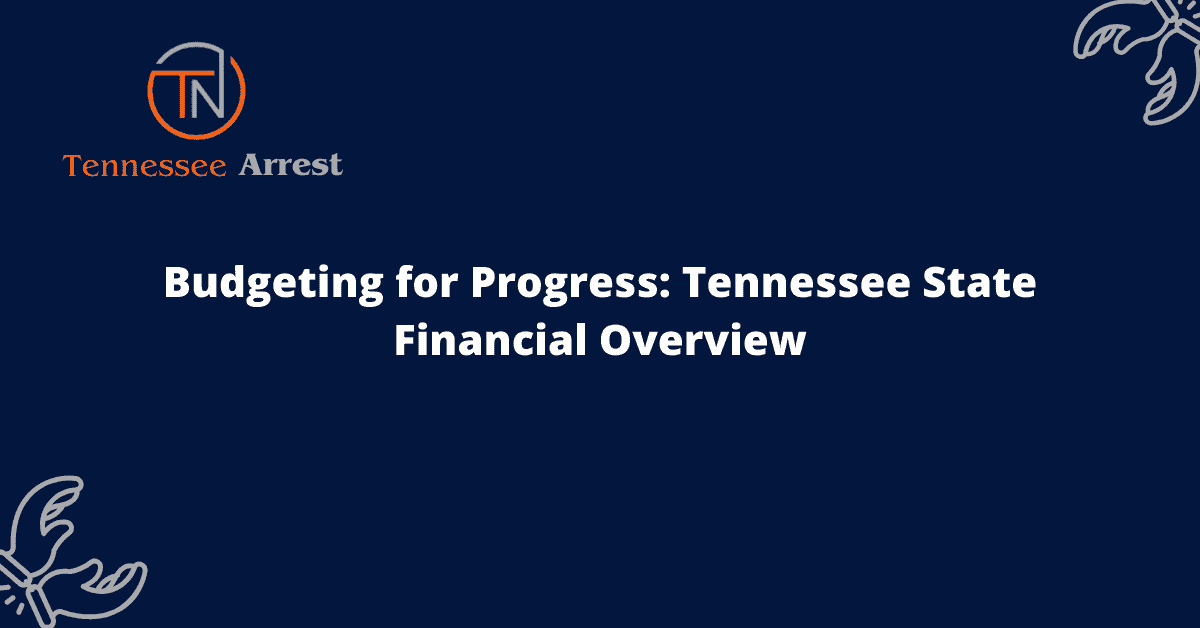Budgeting for Progress: Tennessee State Financial Overview
When it comes to financial progress, budgeting plays a crucial role. It allows individuals and organizations to allocate their resources wisely and plan for future growth. In the state of Tennessee, budgeting is taken seriously as it provides a comprehensive overview of the state’s financial situation.
Tennessee’s financial overview showcases the state’s efforts in managing its finances efficiently. With a strong focus on transparency and accountability, Tennessee ensures that its budget reflects the needs and priorities of its residents. By analyzing revenue streams, expenditures, and debt management, the state can make informed decisions to promote economic growth and provide essential services to its citizens.
Tennessee’s Revenue Streams
Tennessee’s financial progress heavily relies on its revenue streams. These streams include taxes, fees, and other sources of income that contribute to the state’s budget. By carefully analyzing and managing these revenue streams, Tennessee can ensure a steady flow of funds to support its various programs and services.
Taxation and its Impact
One of the primary sources of revenue for Tennessee is taxation. The state collects taxes from various sources, such as income tax, sales tax, property tax, and business tax. These taxes play a crucial role in funding essential services like education, healthcare, infrastructure development, and public safety. By effectively managing and allocating tax revenue, Tennessee can address the needs and priorities of its residents.
Fees and Other Income Sources
In addition to taxes, Tennessee also generates revenue through fees and other income sources. These fees may include licensing fees, permit fees, registration fees, and fines. Other income sources can include investments, grants, and federal funding. By diversifying its revenue streams, Tennessee can reduce its reliance on a single source and ensure financial stability.
Expenditures and Priorities
Managing expenditures is a crucial aspect of budgeting for Tennessee. The state carefully allocates funds to different sectors based on their importance and impact on residents’ lives. Education, healthcare, infrastructure, public safety, and social services are among the top priorities for Tennessee. By prioritizing these areas, the state aims to improve the overall well-being and quality of life for its citizens.
Evaluating Program Effectiveness
Tennessee regularly evaluates the effectiveness of its programs and services to ensure that allocated funds are being utilized efficiently. This evaluation process involves analyzing data, assessing outcomes, and making necessary adjustments to optimize resource allocation. By continually monitoring and evaluating program effectiveness, Tennessee can maximize the impact of its budget and provide the best possible services to its residents.
Debt Management and Financial Stability
Maintaining financial stability is a priority for Tennessee, and effective debt management plays a significant role in achieving this goal. The state carefully manages its debt by monitoring interest rates, repayment schedules, and borrowing practices. By prudently managing its debt, Tennessee can maintain a healthy financial position and ensure long-term sustainability.
Promoting Economic Growth
Tennessee’s budget also focuses on promoting economic growth and development. The state allocates funds to initiatives that support job creation, business growth, and entrepreneurship. By investing in economic development programs, Tennessee aims to attract new businesses, stimulate innovation, and create opportunities for its residents.
Supporting Small Businesses
Tennessee recognizes the importance of small businesses in driving economic growth. The state provides support through grants, loans, and other assistance programs to help small businesses thrive. By nurturing a favorable environment for small businesses, Tennessee fosters job creation and contributes to overall economic prosperity.
Infrastructure Investment
Investing in infrastructure is another key aspect of Tennessee’s budgeting strategy. The state allocates funds for the maintenance, improvement, and expansion of its transportation systems, utilities, and public facilities. By investing in infrastructure, Tennessee enhances its connectivity, attracts investment, and promotes economic development across the state.
In conclusion, budgeting plays a crucial role in Tennessee’s financial progress. The state carefully manages its revenue streams, prioritizes expenditures, evaluates program effectiveness, and promotes economic growth. By adopting these strategies and ensuring transparency and accountability, Tennessee aims to provide essential services and create a prosperous future for its residents.
FAQs
What is the current budget allocation for Tennessee State?
The current budget allocation for Tennessee State is determined by the state legislature and is subject to change each fiscal year. It includes funding for various sectors such as education, healthcare, infrastructure, and public safety.
How is the budget for Tennessee State determined?
The budget for Tennessee State is determined through a comprehensive process that involves input from various stakeholders, including government officials, economists, and public representatives. It takes into account the state’s financial resources, projected revenues, and priorities for spending.
What are the major sources of revenue for Tennessee State?
The major sources of revenue for Tennessee State include taxes, such as income tax, sales tax, and property tax. Other sources include federal grants, fees and fines, lottery proceeds, and investment income.
How does Tennessee State prioritize its budget allocation?
Tennessee State prioritizes its budget allocation based on the needs of its residents and the state’s overall goals. Areas such as education, healthcare, infrastructure development, and public safety are typically given high priority. The budget allocation also takes into account any pressing issues or emerging challenges that require immediate attention.
Does Tennessee State have a surplus or deficit in its budget?
The surplus or deficit in Tennessee State’s budget can vary from year to year. It depends on various factors such as economic conditions, revenue generation, and expenditure patterns. The state strives to maintain a balanced budget, but external factors can sometimes lead to deficits or surpluses.
What measures are taken to ensure transparency and accountability in Tennessee State’s budgeting process?
Tennessee State follows a transparent and accountable budgeting process, which includes public hearings, financial reports, and regular audits. The state government encourages public participation and scrutiny to ensure that the budgeting process is fair, efficient, and aligned with the needs of the residents.







